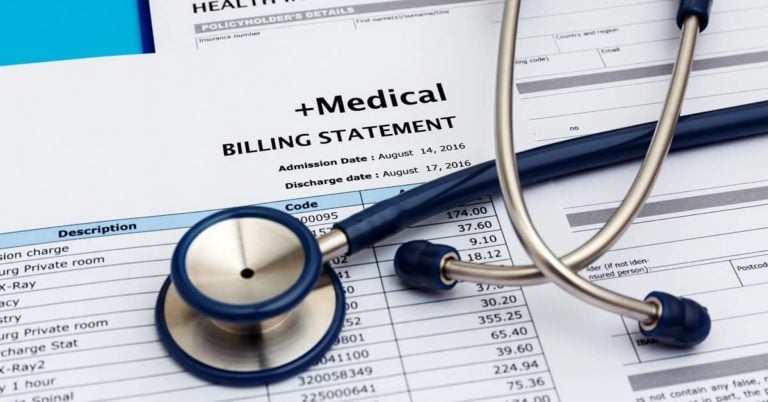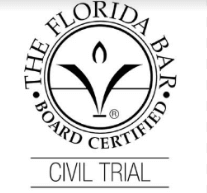
Is Pain and Suffering Separate from Medical Bills?
Table of Contents
The two main types of damages recoverable in most personal injury claims are: economic damages and non-economic damages. Economic damages represent financial losses, including medical bills. Non-economic damages, meanwhile, encompass a variety of losses without a quantifiable financial component – including pain and suffering.
Depending on the circumstances of your injury, Florida law may limit your ability to recover damages for pain and suffering and other non-economic losses. An experienced lawyer can advise you what damages you may be able to recover and build a strong claim for maximum compensation on your behalf.
For over 25 years, Kogan & DiSalvo has been representing clients throughout Florida in a wide range of injury claims. Contact our personal injury lawyers today for a free case review, or call (561) 375-9500 today.
What Compensation Can I Recover for Medical Bills?
In a personal injury claim, you may be entitled to compensation for all of your medical expenses connected to the accident. This may include:
- Ambulance transport
- Emergency room care
- Hospitalization
- Surgeries, including emergency and reconstructive procedures
- Prescription medications
- Therapies and rehabilitation
You may be able to recover compensation for both the medical bills you have incurred to date, as well as the anticipated cost of future medical treatment, ongoing therapy, etc. You can also pursue damages for related out-of-pocket expenses (such as travel to and from medical appointments, assistive devices, and home healthcare services).
To prevail in your claim, medical bills and other economic damages must be supported by evidence. An experienced personal injury lawyer can thoroughly review your medical records and the bills you have received to calculate the compensation in your case. Testimony by expert witnesses can support your damages claim for future medical bills.
What Compensation Can I Recover for Pain and Suffering?
Although pain management is a crucial part of treating any injury, pain and suffering damages do not refer to the financial cost of medications, surgeries, and other treatments. Instead, pain and suffering is the legal term for the adverse effects of an injury on your physical health and mental and emotional well-being. As such, pain and suffering damages are separate from the losses you can recover for medical bills.
You may be able to recover compensation for pain and suffering if you experience the following issues after an injury:
- Physical pain (acute and chronic)
- Mental distress (such as post-traumatic stress, anxiety, depression, etc.)
- Emotional anguish (e.g., shame, embarrassment, frustration with your changed circumstances, etc.)
- Inconvenience (ex: victims of a spinal cord injury may be entitled to compensation for the difficulties they face with mobility and other functions)
As with medical bills, the evidence must support your claim for pain and suffering damages. Obviously, calculating pain and suffering is less straightforward than adding up numbers on a billing statement. Testimony from your doctors, friends and family members, and – perhaps most importantly – you can help establish your right to compensation for pain and suffering.
Does Florida Limit Pain and Suffering Damages?
Unlike many states, Florida does not place a cap on the damages you can recover for pain and suffering in most personal injury claims. There are two exceptions to this rule:
- $500,000 cap on non-economic damages in medical malpractice claims
- $200,000 cap on non-economic damages in personal injury claims against a government entity
Although non-economic damages are not subject to a cap in auto accident claims, the Florida no-fault accident law does limit the circumstances in which you can pursue a claim for pain and suffering.
Restrictions on Pain and Suffering Damages in Florida Auto Accident Cases
If you are injured in a motor vehicle accident in Florida, you must first file a claim with your own insurance company. Your personal injury protection (PIP) insurance covers a portion of your economic losses (including medical expenses and lost wages).
However, PIP does not cover pain and suffering and other non-economic losses. In fact, you are barred from pursuing a claim against the at-fault driver for full compensation of damages (economic and non-economic) unless your injuries meet the threshold for serious injury.
According to Florida law, a serious injury constitutes one or more of the following:
- “Significant and permanent loss of an important bodily function”;
- “Permanent injury within a reasonable degree of medical probability, other than scarring or disfigurement”;
AND/OR - “Significant and permanent scarring or disfigurement.”
Your medical records and testimony from one or more medical experts can help prove that your injury meets the threshold to pursue a fault-based claim against a negligent driver. You may be entitled to compensation for the full extent of damages in your case, including pain and suffering.
What Compensation Are You Entitled to in a Personal Injury Claim?
Defendants and insurance companies frequently contest both the seriousness of victims’ injuries as well as the damages they pursue. Some losses, such as medical bills, are easier to claim than others.
If you have been injured by a careless driver, a negligent property owner, or another party, it is important to speak to a personal injury lawyer as soon as possible. The attorneys at Kogan & DiSalvo can build a strong claim on your behalf for pain and suffering and other types of damages.
Contact our experienced personal injury lawyers at Kogan & DiSalvo today, or call (561) 375-9500. We have served clients throughout Florida for over 25 years. We have achieved significant recoveries on behalf of clients in a variety of personal injury claims. Your initial consultation is free, and we work hard to pursue maximum compensation on your behalf.
 (561) 375-9500
(561) 375-9500

 Call
Call





